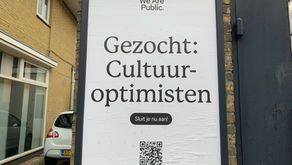Elgar Society
- Judith Weir
- Oct 8, 2023
- 2 min read

It was certainly an honour to be invited to address the London Branch of the Elgar Society. As a colleague had mentioned, 'you can be sure that whatever you talk to them about, they will know more about it than you' - which turned out to be true in the nicest, most polite way.
The only possible Elgarian link I have is that I currently occupy the same office as the great man did: Master of the King's Music. So I decided to talk about the twentieth century holders of the post, centred around Sir Edward (who was MKM from 1924 until his death ten years later.) The research was fascinating, especially about the least known 20th century incumbents, Sir Walter Parratt and Sir Henry Walford Davies, respectively Elgar's predecessor and successor. Both turned out in my view to be "thoroughly good eggs", unselfishly devoted to teaching and the wider accessibility of music, models for any later holder of the post.
Of course English 20th century composers at this level have many devotees, and I was especially conscious of my thin knowledge of Sir Arnold Bax and Sir Arthur Bliss, with some gaps filled in by my thoughtful audience. Bliss in particular evoked considerable enthusiasm and I resolved to listen more widely to his music. Perhaps the most controversial MQM (ever?) is Malcolm Williamson, and I was anxious to make my usual point that his music is really worth hearing, amidst all the lurid comment lazily trotted out when his tenure of the job is discussed (though not by this properly-informed audience, of course.)
As I declared to my listeners, I believe it's something of a British success story that a musical post founded by royalty in 1626 has been continuously occupied up to today, and we're still talking about it. PICTURED - Alice and Edward Elgar's grave at St Wulstan's Catholic Church, Little Malvern. To which I cycled, in an Elgarian manner, through the Malvern Hills in 2015.






